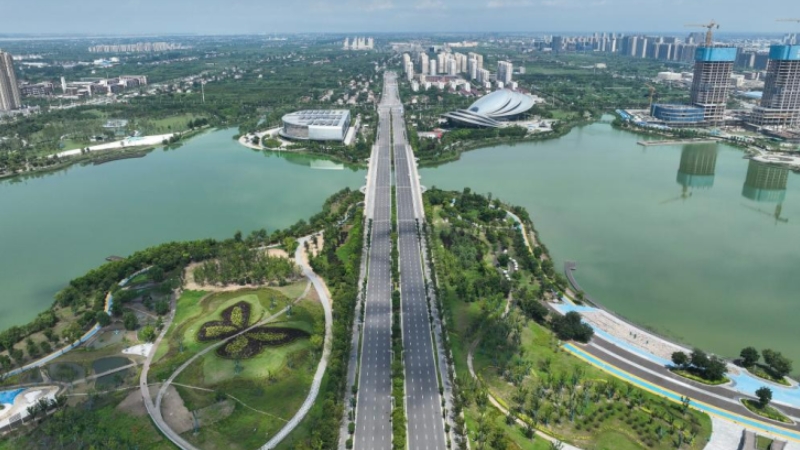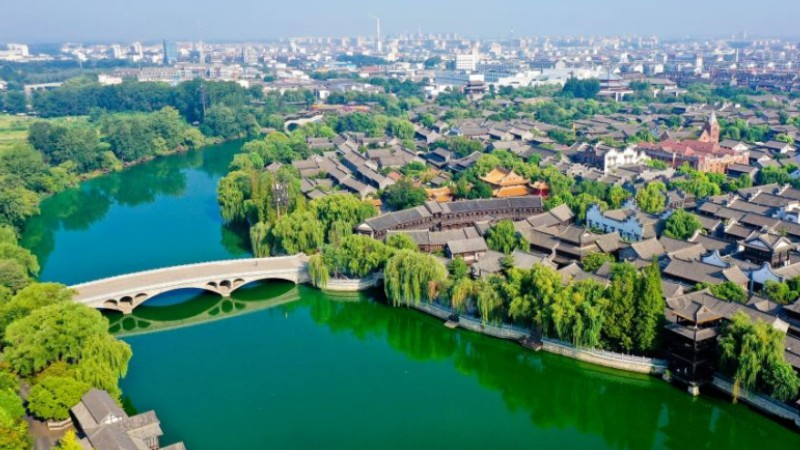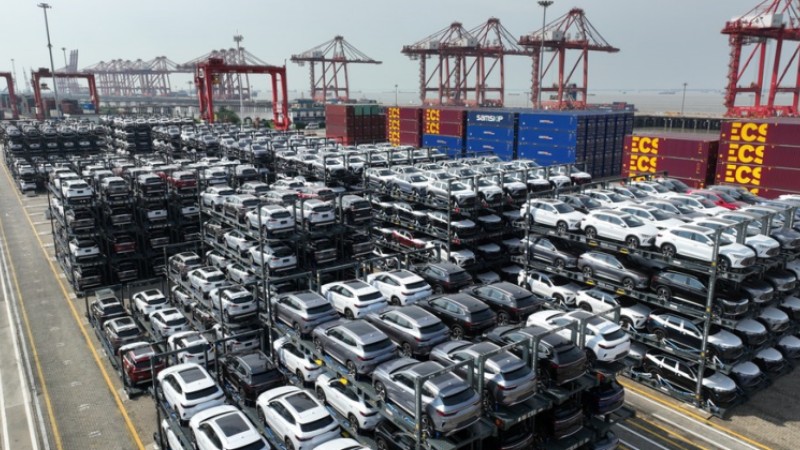China's Juncao technology benefits people along Belt and Road
Juncao, a Chinese-invented technology using grass to grow edible mushrooms, has become a “grass of happiness” that benefits people along the Belt and Road.
The Juncao technology was developed by Lin Zhanxi, chief scientist with the China National Engineering Research Center of Juncao Technology at Fujian Agriculture and Forestry University in southeast China's Fujian Province.
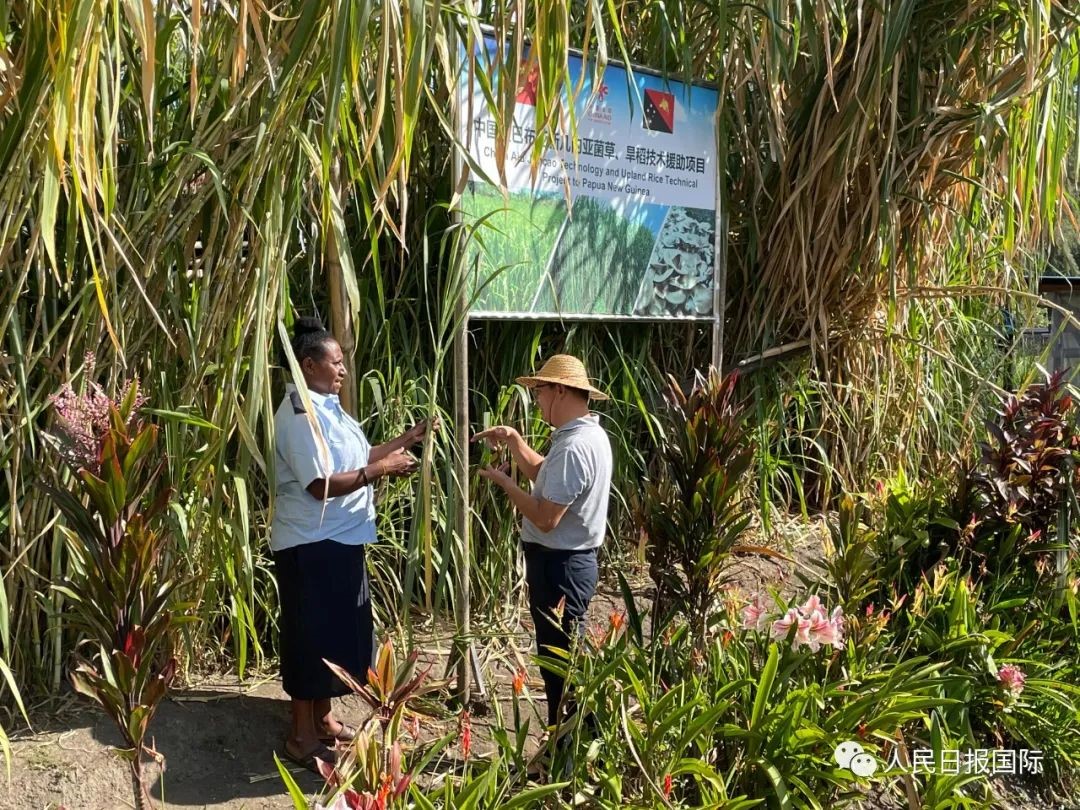
A Chinese expert instructs a farmer in Papua New Guinea to grow Juncao. (People's Daily/Chen Xiaowei)
In 1997, the Juncao technology was introduced in Papua New Guinea (PNG) by Lin and his team.
The technology has been promoted in eight provinces and 16 regions in PNG, benefiting over 8,600 locals. The Juncao industry has become the second-largest pillar industry in PNG.
In Fiji, Juncao used as livestock feed has greatly lowered the death rate of livestock during the dry season.
Thanks to the promotion of the Juncao technology in Rwanda, over 30,000 locals have doubled their income.
In South Africa, a farmer who runs a facility of 10 square meters for mushroom production by implementing the Juncao technology can get rid of poverty.
China's Juncao technology has enabled many poor households to escape poverty, serving as a good example for poverty alleviation in Africa and surrounding countries, said Lin at a sub-forum of the first high-level conference of the Forum on Global Action for Shared Development on July 10, 2023.
So far, Lin and his team have shared the Juncao technology with 106 countries and regions worldwide, and created over 100,000 job opportunities for locals by providing training on the technology, establishing demonstration bases for the technology, and holding seminars.
The Juncao technology serves 13 of 17 sustainable development goals in the UN 2030 Agenda for Sustainable Development. It has become one of the brand projects of China's overseas agricultural aid and poverty alleviation efforts.
China has held 328 training sessions on Juncao technology at home and abroad, attracting 13,631 trainees. Locals in many countries along the Belt and Road have gotten rid of poverty thanks to the technology.
David, a Ph.D. student from Benin at Fujian Agriculture and Forestry University, has lived in China for 11 years and participated in the promotion of the Juncao technology several times. At the university, Lin's team has nurtured 26 international students with master's and doctoral degrees, who contributed to the development of their countries after graduating.
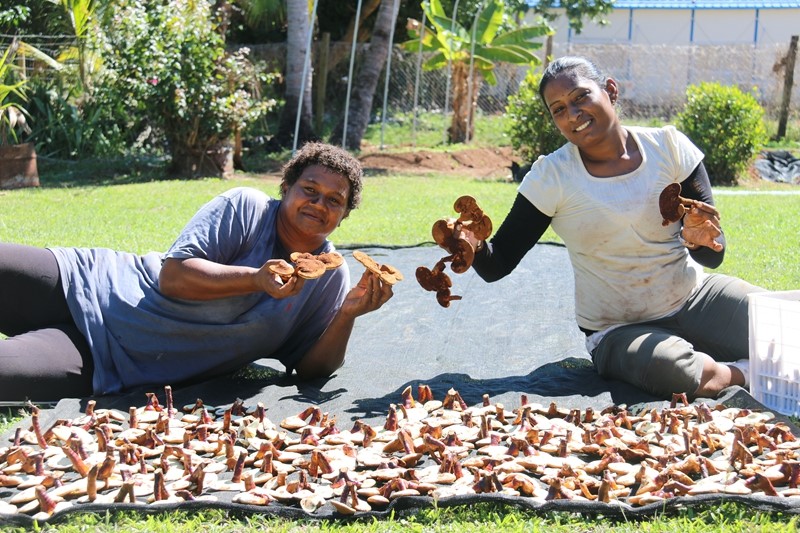
Fiji farmers joining a Juncao technical training program held by China show mushrooms they have grown. (Photo from the official website of the China International Development Cooperation Agency)
"The Belt and Road Initiative (BRI) has given us more opportunities to learn in China and brought more convenience to us," said David.
He said technicians from Benin came to Fujian Agriculture and Forestry University to learn the Juncao technology and brought tangible benefits to their mother country through the technology after they returned.
The BRI has promoted mutual understanding and friendship between the Chinese and Beninese, especially in terms of cultural exchanges. This has not only enhanced people-to-people bonds, but also led to improvements in tourism, education, art, healthcare and other fields for the peoples of the two countries, said David.
This year marks the 10th anniversary of the BRI. Lin believes that the Juncao technology will contribute to developing countries and countries along the Belt and Road, and play a role in implementing the UN 2030 Agenda for Sustainable Development.
Photos
Related Stories
- China's Juncao technology brings better future to people in developing countries
- China-Pacific island countries Juncao technology demonstration center opens in Fiji
- Delegates recommend adoption of Chinese Juncao technology to promote sustainable agricultural production in Africa
- Interview: Chinese Juncao technology helps Rwandan farmers alleviate poverty
- Juncao contributes to treatment of saline-alkali land in Jiangsu province
Copyright © 2023 People's Daily Online. All Rights Reserved.







